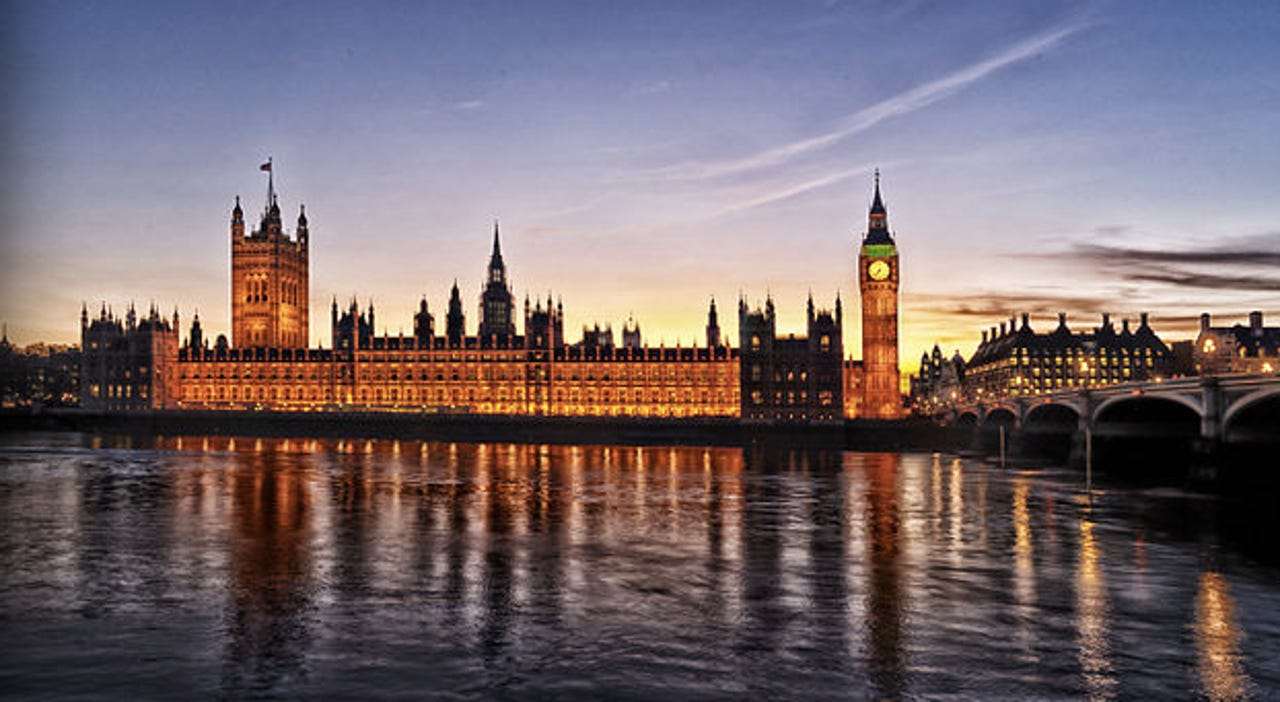Queen's speech unveils UK's 'Patriot Act' Web monitoring plan

HM the Queen, in her first speech to the British Parliament in two years, announced albeit briefly the U.K. government's plan to monitor all Web activity in the country.
It puts the U.K. en par with the United States, Russia, and China in how it monitors its citizens' Web activity.

The Queen needs no persuasion in signing the bill into law as it is her sovereign obligation, but getting to the Royal Assent stage might be easier than many would hope. The government-written speech is spoken by the Queen to address the upcoming legislative agenda.
In the speech, she said:
"My government intends to bring forward measures to maintain the ability of the law enforcement and intelligence agencies to access vital communications data under strict safeguards to protect the public, subject to scrutiny of draft clauses."
It's not often you see a government hedging, but when you do, it does it in style. Addressing two key issues --- the European "safeguard" issue, and the "subject to scrutiny" --- the speech highlights how controversial and difficult the law-making process will be in this case.
The controversial plan would see every scrap of Web traffic, every email, and Skype and landline phone calls logged with the third intelligence service, GCHQ, charged with protecting the U.K. from cyber threats.
But the bill to law transition could still be riddled with obstacles and difficulties if the Europeans get their way.
British ISPs and landline and mobile companies will be forced to open up their datacenters and allow the real-time analysis of its customers' Web activity --- including social networks like Facebook and Twitter. The data collected would include calls made, when, to whom, from which number, including when a website was visited, for how long, who an email was sent to and where it came from, and when it was sent.
All of this data will be analysed in real-time by GCHQ's Cheltenham listening station headquarters.
While the contents of the data contained in such traffic will be off-limits to the British spooks, all that is needed to access the contents is a search warrant, either issued by the courts or the Home Secretary.
In the grand scheme of things, it could be worse. Far worse. Despite only "suspected terrorists, paedophiles or serious criminals" in the government's crosshairs, with a clear message that "ordinary people" will not be targeted, the plans have stirred enough controversy for the media to prick up its ears over the proposed law.
But aren't "suspected terrorists, paedophiles or serious criminals" also "ordinary people" until they are charged and convicted with an offence? One smells a hiccup in the government's logic.
The government isn't opening every email and laughing at your Facebook statuses. Not every email anyway. But it does want to trace people's communications with others and determine who they are contacting and when. Only "why" comes into the equation when a search warrant is issued.
That said, the wider British reaction has been no more than a fraction of a level compared to the SOPA and PIPA protests in the United States this year and last. It's a shame, considering this bill will be the single-most intrusive act of British law to pass through Parliament in living memory.
But until today, there had been no official government response, notwithstanding the media response to drum-up anger across the rolling hills of the United Kingdom and the occasional off-the-cuff remark from government ministers.
Getting the bill through Parliament will be tricky -- like any other bill. The previous Labour government tried to pass a similar bill. It's likely many in opposition will support the efforts. The Conservative then-opposition slammed the plans. Now in power, their coalition-minority Liberal Democrat partners are opposing the plans, threatening to "kill" any such plan. But Labour doesn't half love a fight, and though it could be seen as a hypocritical move, it wouldn't be a surprise if Labour's whips pushed its party members to oppose the bill in its entirety.
And then comes Europe. The European Commission could veto the bill, warning that the plans "would potentially be incompatible" and conflict with existing European law.
But a veto will only be taken should there be few or no "safeguards" to protect the data and privacy rights of its citizens -- safeguards which have been promised in the Queen's speech.
In a year from now, British citizens are likely to have every shred of their Web activity monitored and recorded, with the potential of it being analysed by the government. The chances of it reaching 'law' status is "entirely possible" to "rather likely" on the legislative colour wall chart.
Image credit: Wikimedia Commons, CC.
Related:
- How the U.K. plans anti-terror phone, email monitoring
- U.K. ‘to announce’ real-time phone, email, Web traffic monitoring
- U.K.’s ‘Patriot Act’ Web monitoring law could face European veto
- Web inventor slams U.K. monitoring plans as ‘destruction of human rights’
Around the network:
- Between the Lines: SOPA, PIPA postponed: Nice work, everyone
- How ACTA would affect you: FAQ
- Gallery: Black Wednesday: The day the Web went dark
- David Gewirtz: 5 reasons why SOPA, PIPA and other legislative idiocy will never die
- Geeks 1, Congress 0: Controversial anti-piracy bill SOPA ’shelved’
- Unless Facebook, Google blackout, SOPA will succeed: Here’s what you can do
- Reddit will enact ‘nuclear option’ to protest SOPA, PIPA
- Reddit’s anti-SOPA “nuclear” protest is a good start